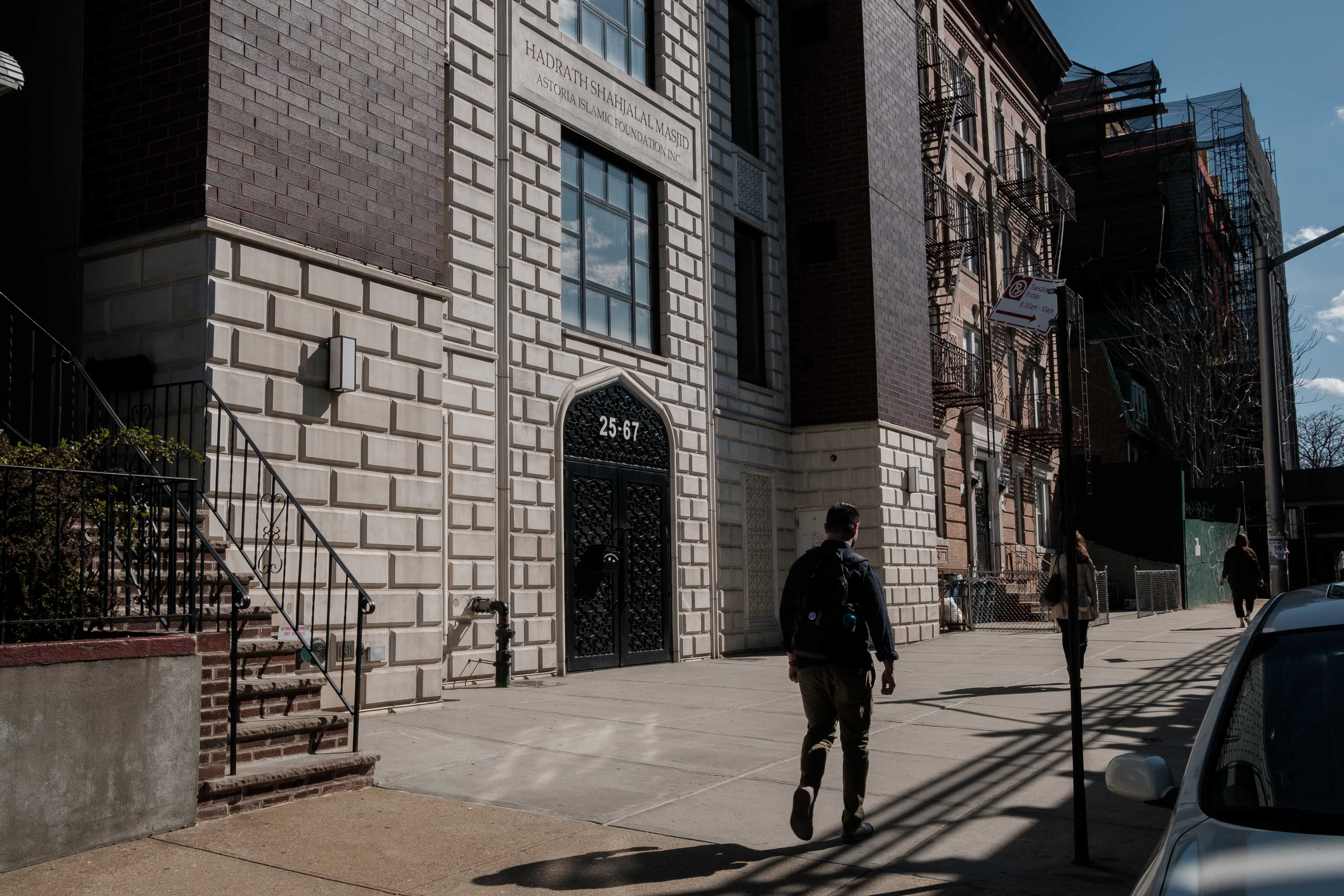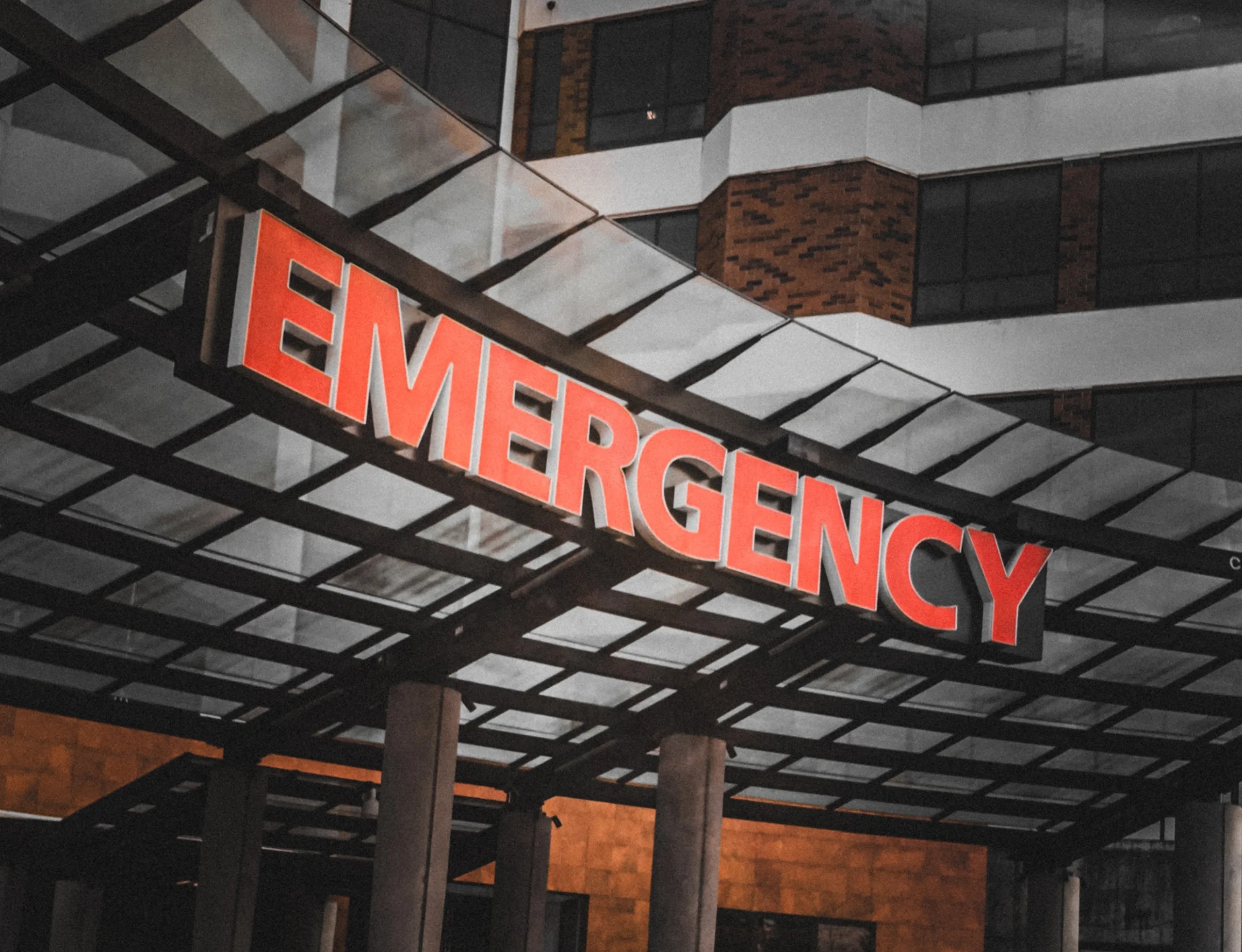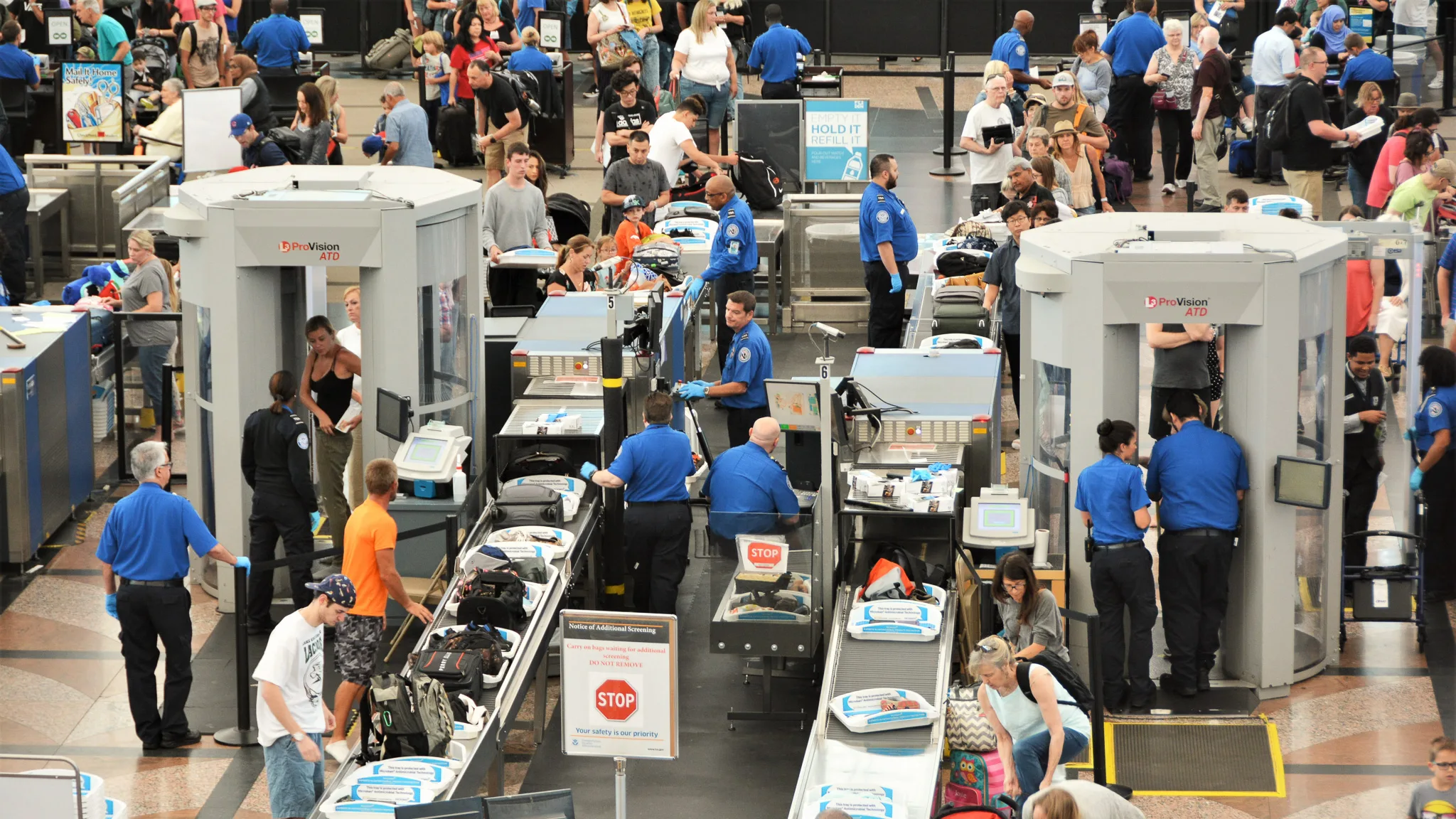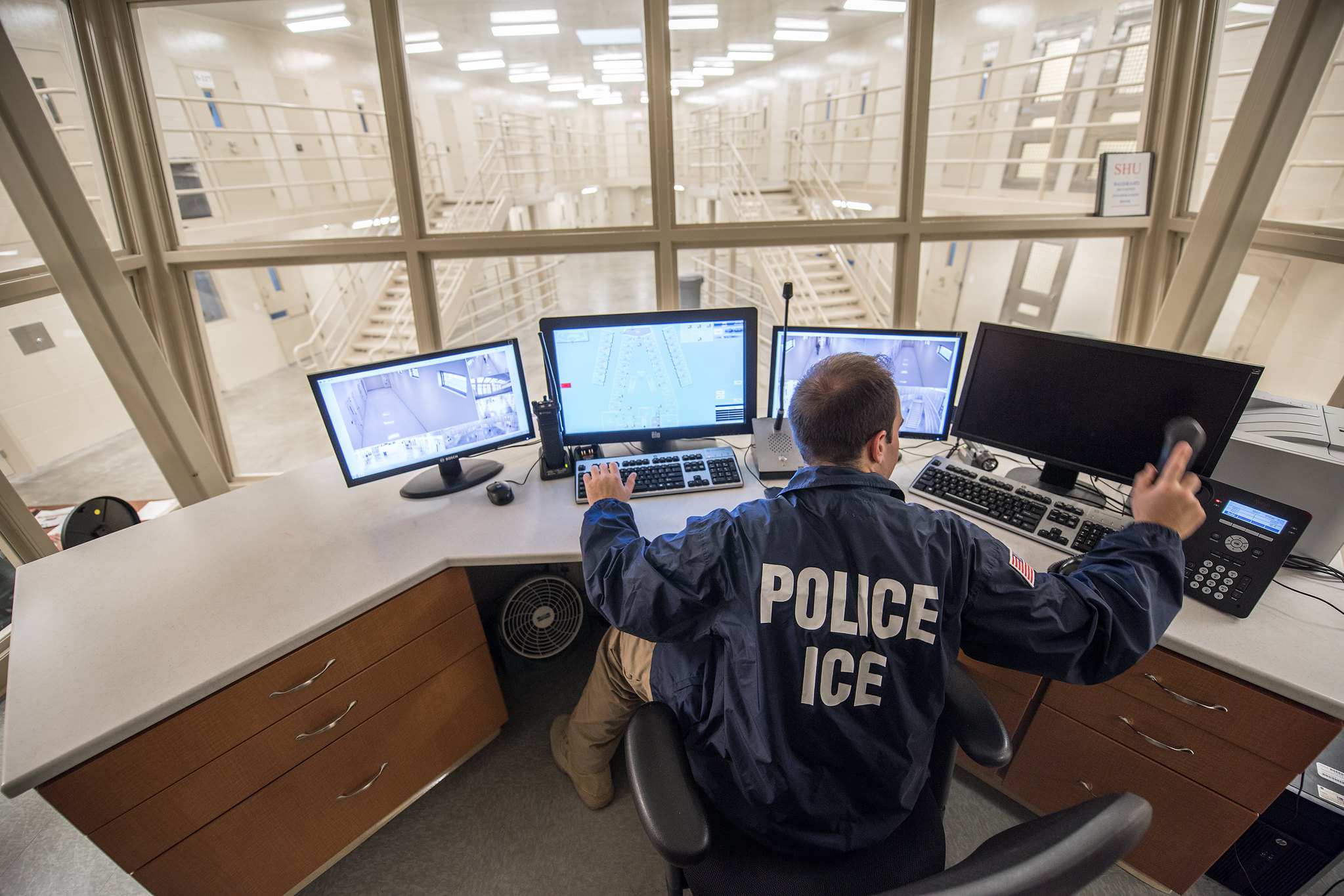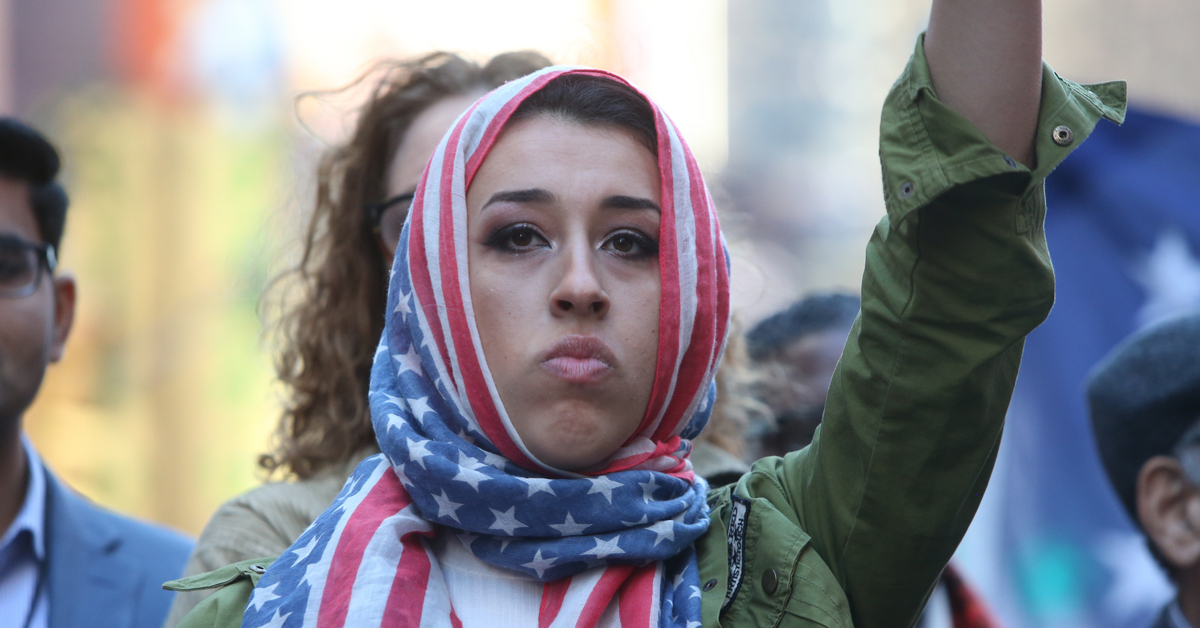Muslims are the focus of more than 80 percent of intelligence investigations into political activity by the New York City Police Department, Documented has learned.
Despite years of scrutiny, community outrage, lawsuits and additional oversight, the department remains focused on targeting Muslim Americans. A source familiar with the department’s intelligence activity told Documented that the NYPD’s intelligence bureau continues to mostly target Muslims.
In 2011, the Associated Press revealed that the police department had unconstitutionally infiltrated Muslim student groups, religious bookstores, hookah bars and other places to spy on people. The stories sparked public outrage and several high-profile lawsuits, including Raza v. City
of New York and the recently settled Hassan v. City
of New York. It led to the dismantling of the demographics unit, which was responsible for the spying program, in 2014.
Despite the uproar and the ensuing lawsuits, the Office of the Inspector General found in 2016 that the NYPD was still largely targeting Muslims with its surveillance operations. In a report, the Office of the Inspector General for the NYPD wrote, in a footnote, that 95 percent of the investigations conducted by the NYPD’s Intelligence Bureau it reviewed, targeted people who were associated with Muslims or individuals associated with Islam.
Documented has learned that the Intelligence Bureau continues on a similar pattern. More than 80 percent of the department’s investigations into political activity are still targeting Muslim people or organizations.
Over the past year, the intelligence bureau has received additional scrutiny in the form of a civilian representative that was appointed to take part in the approvals of opening, closing or extending investigations into political activity by the NYPD’s Intelligence Bureau.
Judge Stephen Robinson, a former federal judge, was appointed to fill this role. He told Documented he was unaware of the proportion of investigations that targeted Muslim groups.
“I do not know what percentage of investigations by the Handschu Committee involve Muslim people or organizations. As far as I know that statistic is not kept,” Robinson told Documented, referencing the committee charged with overseeing surveillance of political activity by the NYPD. “We certainly do not keep any kind of running tally in the committee.”
“A subject’s religious affiliation does not guide the work of the Handschu Committee. That is to say, we never consider religious affiliation as a predicate for an investigation unless religion is explicitly used by the subject as a reason or motivation to commit a crime,” Robinson said. “We focus on the actions of people and organizations, some of whom are Muslim, some are not, and still others are of undisclosed religious affiliation.”
The NYPD did not respond for comment at the time of publication.
Robinson’s role was created in the settlement of the Raza v. New York case, which resulted in a number of updates to the Handschu guidelines, a set of rules created in 1985 to govern how the NYPD conducts investigations into political activity in the city. The rules were relaxed after the 9/11 attacks on the World Trade Center, which, in part, led to the unconstitutional surveillance of Muslims by the demographics unit.
Robinson’s background as an attorney for the FBI and prosecutor, initially drew some skepticism on how adversarial of a line he would take in his oversight capacity. The Muslim Democratic Club of New York said at the time that it was concerned about Robinson’s background working for the FBI, “an agency with its own long and sordid history of discriminatory law enforcement targeting Muslims and Muslim communities.”
Last month, he made public his first report on his work as civilian representative, another requirement of the court settlement.
Lawyers who worked on the settlements for cases involving surveillance of Muslims told Documented that Robinson has taken his role seriously and that his presence has led to the NYPD taking the process more seriously.
“The presence of the civilian representative, in the deliberative process has had a positive influence,” said Arthur Eisenberg, the Legal Director of the New York Civil Liberties Union, who was involved in the Raza v. New York case. “As far as we can tell, it is trending in the right direction, but we obviously need to see how it continues to trend.”
Robinson found, in his first year from March 2017 to March 2018, that there have been 5 percent fewer applications for investigations. He also found that the police department was scrutinizing those applications more closely. The number of requests to open or extend investigations that were denied, modified or where more information was requested increased to 14 from 4.
The report also described how the Handschu committee operates. Once a month all of the police department’s senior intelligence officials, along with the Robinson, meet to discuss all ongoing investigations and requests to open new ones.
The Deputy Commissioner of Intelligence John Miller, along with NYPD intelligence analysts from the bureau’s Intelligence Analysis Unit and lawyers, make a case to the committee as to why they should be permitted to begin spying on individuals or be allowed to continue doing so on others.
Extensions of investigations had been a particular area of concern as the Inspector General’s 2016 report found that baseless investigations were often being extended endlessly without reason, which is a violation of the NYPD’s rules. Robinson said that 100 percent of investigations in his first year were all reviewed and extended or closed within the correct procedures.
Robinson also found that investigations during his first year ran on average for 340.5 days, which was 87 days shorter than the year prior.
“This is still a really long time,” said Tarek Ismail, senior staff attorney at CUNY Law School’s Creating Law Enforcement Accountability & Responsibility project, which filed the Raza v. New York lawsuit along with the NYCLU and others. “And as far as we know, they’re investigations into Muslims around the city so that’s still an issue of concern to us.”
Jethro Eisenstein, a lawyer who worked on the original case of Barbara Handschu that led to the creation of the Handschu guidelines pointed out that Robinson has cracked down on investigations based on guilt by association. For those investigations, the NYPD spied on people on the basis that they had tangential relations to someone who was currently under investigation.
Robinson noted in his assessment that he did not disagree with any conclusion the committee reached. He also has the power to raise any issues he finds with the judge who created the guidelines, which he did not do in his first year.
In his role as civilian representative, Robinson has held meetings with lawyers and community groups that were affected by the NYPD’s surveillance operations.
“We had [Robinson] hear from victims of unlawful and intrusive surveillance,” said Albert Cahn, the legal director for the New York chapter of the Council of American-Islamic Relations. “To let him know we’re not just fighting for an abstract principal, we’re fighting practices that scar New Yorkers, that have hurt so many in such profound ways that really are an immediate threat to our hopes for an open inclusive society.
“[Robinson] seemed quite affected by the stories,” Cahn recalled. “Until you hear from these victims in their own words, just how personal this can be, just how lasting a trauma it can be.”
